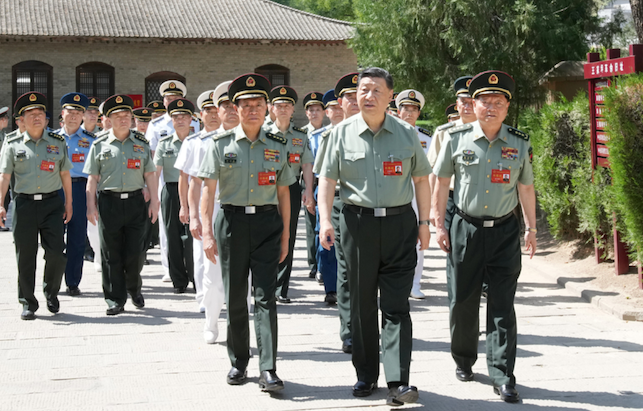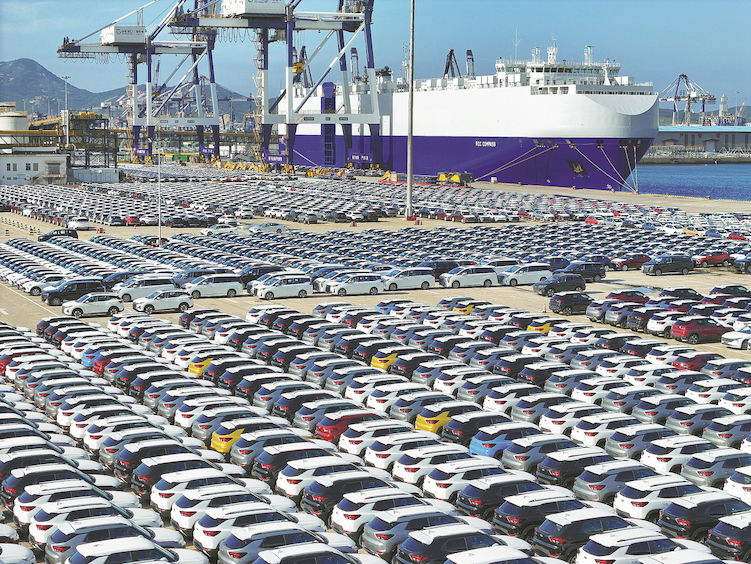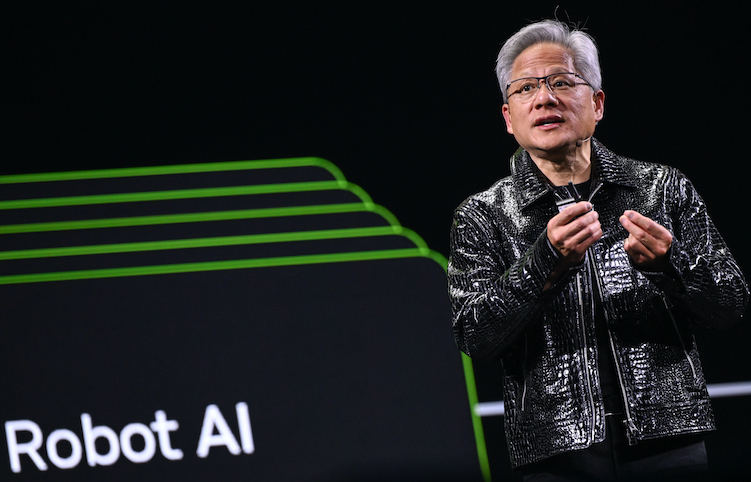Vicious price wars that have plagued key sectors of the Chinese economy have stirred up a hornet’s nest in Beijing.
Indeed, the intense criticism of this problem – spurred by China’s dramatic industrial overcapacity – has put a spotlight on some of the less successful elements of President Xi Jinping’s economic policies. And that has given a glimpse of the apparent dip in both Xi’s popularity and standing within the Communist Party.
More on that shortly, but first: the country’s top leaders pledged this week to intervene and counter “unfair” and aggressive price-cutting by big companies, often with encouragement from provincial authorities.
ALSO SEE: Judge Says China’s Huawei Must Face Trial on Iran Dealings
Xinhua, the state media outlet, announced the news on Tuesday following a strongly worded report in Qiushi, the Communist Party publication, which condemned the risks of industrial overcapacity and said the phenomenon spurs “enormous waste of social resources” and unsustainable debt that could endanger long-term growth.
The move comes as the world’s second-biggest economy struggles to shake off persistent deflationary pressures.
Overcapacity among Chinese manufacturers – which is notorious in the auto, solar and e-commerce sectors – and the price cuts made to clear stock inventories, have sparked price wars that are showing signs of influencing consumer behaviour.
Analysts worry this could drive further reductions, raising concerns that deflation may become entrenched and hinder efforts to stabilise the $19 trillion economy.
“Enterprises engaging in disorderly low-price competition must be regulated in accordance with laws and regulations,” Xinhua quoted a meeting of the Central Financial and Economic Affairs Commission as saying.
The commission is a top economic policy body of the ruling Communist Party and is chaired by President Xi.
“Businesses should be guided to improve product quality and support the orderly phasing out of outdated production capacity,” the Xinhua report added.
‘Rat-race-style competition’
Data on Monday showed that manufacturers were slashing prices to attract buyers, as US President Donald Trump’s tariff onslaught threatens the long-term viability of selling to the United States, the world’s top consumer market, and domestic demand remains weak.
While new orders edged up, factory gate prices remained in the doldrums, the data showed, suggesting that the economy risks getting stuck in a cycle of ongoing lower prices.
A front-page editorial published on Sunday in the Communist Party’s official newspaper, People’s Daily, drew significant attention for its call for China’s economy to “break free from ‘rat-race-style’ competition” among firms.
The article concluded that relentless price-cutting fostered destructive competition that defied economic principles and had clear negative economic consequences.
The Qiushi article on Tuesday carried the most strongly-worded Party warning on the risks of industrial overcapacity. Written under a pseudonym, it focused on “involutionary competition” in which it said firms and local governments invest vast amounts of capital to chase market share in an environment of limited demand, while failing to achieve revenue growth.
Solar, EVs, batteries & e-commerce
It singled out industries such as photovoltaics, lithium batteries, electric vehicles, and e-commerce platforms.
To cut costs, some companies compromise on product quality, Qiushi said, disincentivising innovation and investment in research and development and harming consumer interests as “bad money drives out good money.”
Other firms were using resources to expand capacity, while delaying payments to suppliers and contractors, squeezing the entire industrial chain. E-commerce platforms compete on prices by using their advantageous position to transfer pressure on the merchants using them to get through to customers, Qiushi said.
The magazine also offered some rare criticism of local officials, accusing them of both “absence and overreach.”
Officials should step in more as regulations have not kept up with the development of new industries and business models, it said. Bankruptcy mechanisms are also “imperfect,” preventing curbs to excessive supply.
On the other hand, some local governments, focused on short-term growth, attract investment by “artificially creating policy havens” with preferential taxes, fees, subsidies and land use, as well as protectionist measures.
Economists have warned Beijing for years that high levels of state investment and subdued domestic demand – caused in part by a feeble social safety net and deep rural-urban inequalities – leave China overly dependent on exports for growth, and pose debt and deflation risks similar to what Japan experienced in the 1990s.
Qiushi did not mention deflation, but warned that China might suffer from “development model path dependence” and needed supply-side reforms that reduce excess industrial capacity and a strategy to expand domestic demand.
It warned, however, that this would take time.
“Rectifying ‘involutionary’ competition is a complex systematic engineering project that cannot be accomplished overnight or with a single decisive move,” the magazine wrote.

Support for Xi ‘has fallen’
The timing of this strong criticism of economic outcomes coincides with further reports of rivalry and dissent within the CCP and that party leaders have been unhappy for months with President Xi Jinping’s performance.
A US-based political commentator claimed that party leaders accused Xi in a ‘daring petition’ late last year of serious shortcomings and committing 28 errors, such as misguided government and economic policies, wasting public resources, power overreach and more.
Some Chinese exiles have alleged that opponents have joined hands to ensure Xi does not get another term and that Xi loyalists have been transferred, while Xinhua has been highlighting governance principles of former President Hu Jintao.
Analysts have noted that growing unemployment and declining wages have the potential to weaken social stability and that Xi has been blamed for the increase in violent social protests because of his preference for crackdowns, surveillance and suppression.
Willy Wo-Lap Lam, a commentator at the Jamestown Foundation in the US, said on June 21 that President Xi’s absence from authoritative media in recent weeks suggests “his power, though still unassailable, is waning.”
“Domestically, citations of Xi’s name have become thinner and thinner in authoritative official media, including in the People’s Daily, Xinhua, and CCTV,” he noted.
Lam said Xi’s power appeared to have peaked in late 2022, but he had “lost a sizable swathe of power in foreign as well as domestic affairs” since then.
“Xi continues to face problems in two important areas: the military and the techno-industrial complex. In the former, purges have eroded his bases of support. In the latter, the unveiling of a third “big fund” for bankrolling the semiconductor industry indicates that return on investment — in the form of critical breakthroughs — has been underwhelming.”
But he said Xi Jinping was in no danger of losing his top spot as the “core” of the leadership before the CCP’s 21st National Congress in late 2027.
Lam noted that Xi invited his daughter to join a dinner hosted last month for Belarusian President Alexander Lukashenko, adding “the rationale behind Xi Mingze’s appearance is unclear, though it could indicate he is making preparations for a partial retirement.”
He also noted that while China had discovered in May that rare earth exports were a valuable bargaining chip in its tariff negotiations with Washington, US officials had also found something the Chinese valued very highly.
“A key point of leverage for the United States appears to have been allowing PRC citizens to maintain access to student visas.”
- Jim Pollard with Reuters
ALSO SEE:
China Export Curbs on Rare Earth Magnets: a Trade War Weapon
China’s Intense EV Price War Taking a Toll on Car Dealers
A Deflationary Spiral Looms Over China as Overcapacity Bites
Solar Overcapacity Kills Projects, Fuels Bankruptcies In China
Creative Ideas Needed to Stem China’s Overcapacity: US Official
35 Dead in Zhuhai as Another Citizen ‘Takes Revenge on Society’
China’s ‘Broke’ Local Governments Turning to Extortion: HRW
China ‘More Vulnerable to Trump Tariffs’ After Slowdown
China Sees Growing Unrest Over Cases of Financial Distress
























